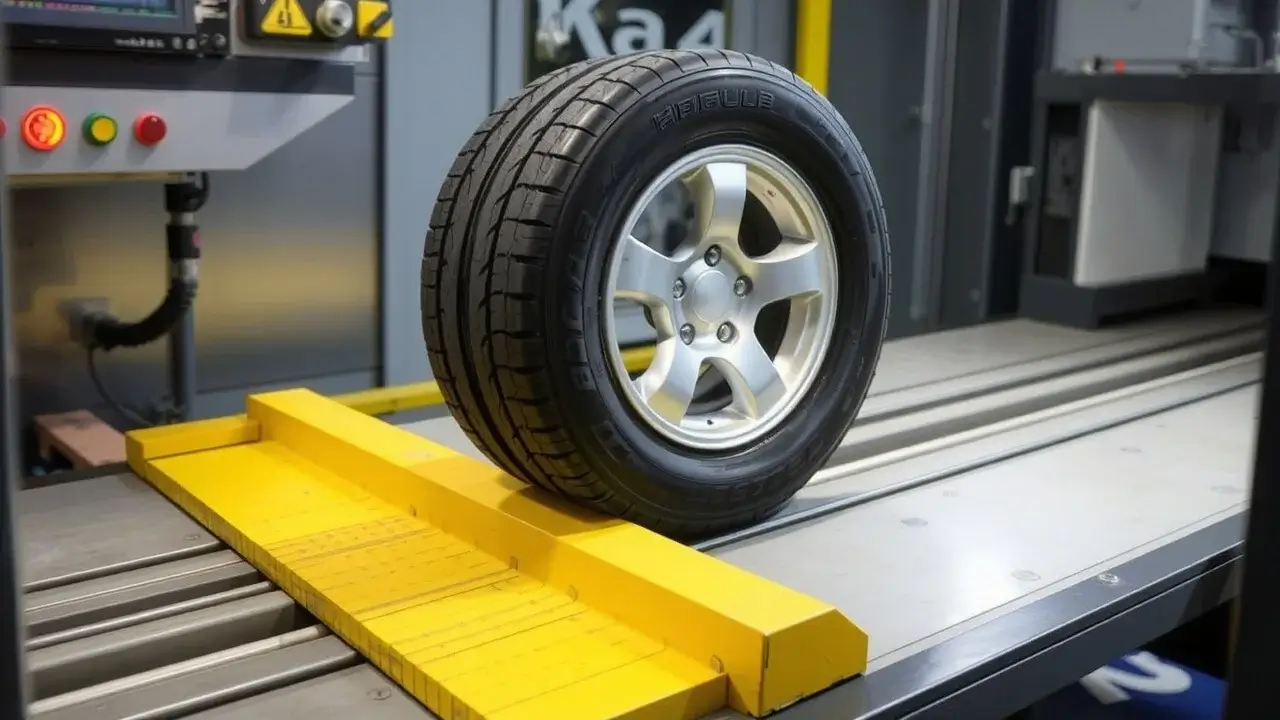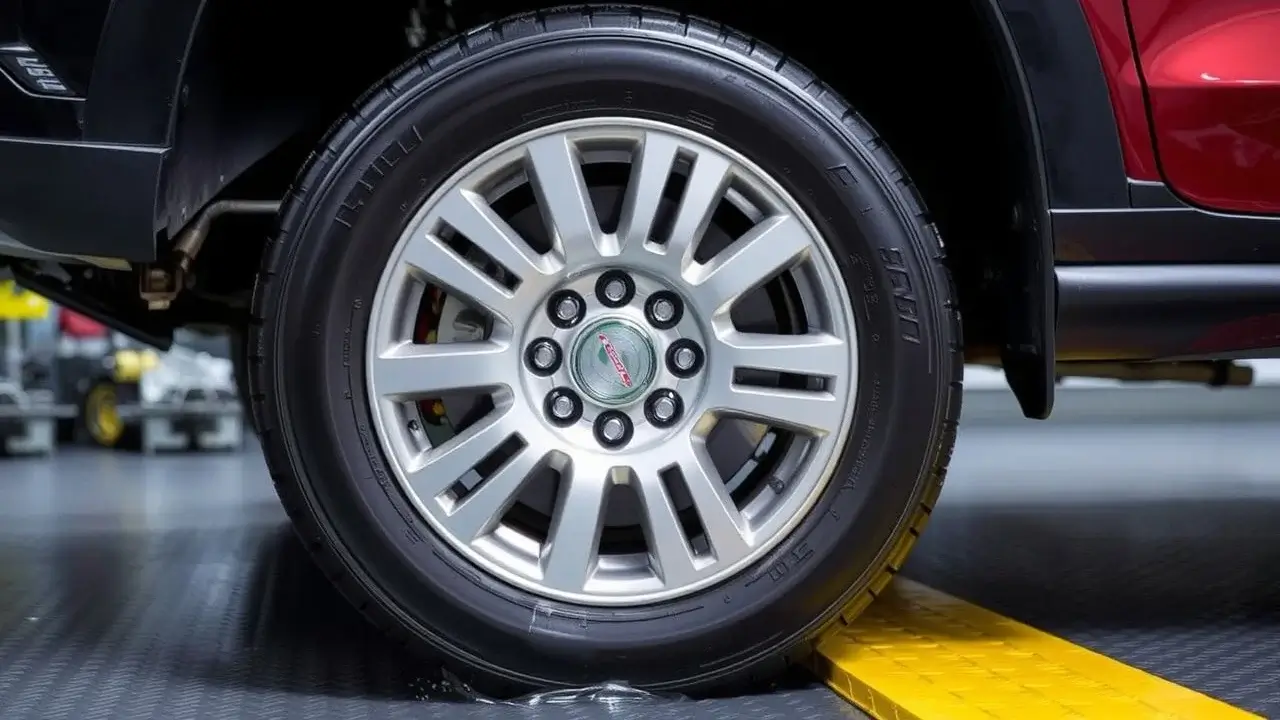Have you ever wondered what makes summer tires grip the road so effectively during the hottest months?
Understanding the intricacies of summer tire rubber compounds can help you make informed decisions about your vehicle’s performance and safety during the warmer seasons.
What Are Summer Tire Rubber Compounds?
Summer tire rubber compounds are specialized blends of materials engineered to provide optimal performance in warm weather conditions. Unlike all-season or winter tires, summer tires are designed to offer superior traction, handling, and braking on both dry and wet roads during the summer months.
How Do Summer Tire Compounds Differ from All-Season and Winter Tires?
The primary distinction lies in the rubber compound formulation:
-
Summer Tires: Utilize a softer rubber compound that remains flexible at higher temperatures, enhancing grip and handling. However, this softness can lead to increased wear in colder conditions.
-
All-Season Tires: Feature a balanced compound designed to perform adequately across a range of temperatures but may not excel in extreme heat or cold.
-
Winter Tires: Comprise a softer compound with added sipes to maintain flexibility and traction in freezing temperatures, but they can become too soft and wear quickly in warm conditions.
What Are the Key Components of a Summer Tire Rubber Compound?
Summer tire compounds typically include:
-
Polymers: The base material, often a blend of natural and synthetic rubbers, providing elasticity and resilience.
-
Fillers: Materials like carbon black or silica that enhance strength and durability.
-
Plasticizers: Additives that increase flexibility and reduce brittleness.
-
Antioxidants and Anti-Ozonants: Chemicals that protect the rubber from degradation due to oxygen and ozone exposure.
The Chemistry of Summer Tire Compounds
What Role Do Polymers Play in Summer Tire Performance?
Polymers form the backbone of the tire’s structure. In summer tires, a higher proportion of synthetic rubber is used to achieve the desired balance between flexibility and durability at elevated temperatures.
How Do Fillers and Reinforcing Agents Enhance Tire Properties?
Fillers like silica and carbon black are incorporated to improve various performance aspects:
-
Silica: Enhances wet traction and reduces rolling resistance, contributing to better fuel efficiency.
-
Carbon Black: Increases tensile strength and abrasion resistance, extending the tire’s lifespan.
Why Are Antioxidants and Anti-Ozonants Crucial for Tire Longevity?
These additives prevent the rubber from cracking and deteriorating when exposed to environmental factors such as UV radiation, oxygen, and ozone, thereby prolonging the tire’s service life.
Engineering Summer Tire Compounds for Optimal Performance
How Do Manufacturers Balance Grip and Wear Resistance?
Achieving the ideal balance involves:
-
Compound Formulation: Fine-tuning the mix of polymers, fillers, and plasticizers to enhance grip without compromising wear resistance.
-
Tread Design: Developing patterns that maximize contact with the road while facilitating efficient water evacuation to prevent hydroplaning.
What Techniques Are Used to Improve Wet Traction?
To enhance wet traction, manufacturers:
-
Incorporate Silica: As a filler to improve adhesion on wet surfaces.
-
Design Specialized Tread Patterns: With grooves and sipes that channel water away from the contact patch, maintaining grip.
How Does Heat Affect Summer Tire Compounds?
Heat influences tire performance by:
-
Softening the Rubber: Enhancing grip but potentially increasing wear if the compound is too soft.
-
Elevating Internal Temperatures: Leading to potential degradation if the tire is not engineered to dissipate heat effectively.
The Impact of Road Conditions on Summer Tire Compounds
How Do Different Road Surfaces Interact with Summer Tire Rubber?
-
Smooth Asphalt: Provides optimal conditions for summer tires, allowing maximum contact and grip.
-
Rough or Uneven Surfaces: Can accelerate wear due to increased friction and potential for cuts or punctures.
What Role Does Temperature Play in Tire Performance?
Temperature significantly affects tire performance:
-
High Temperatures: Keep the rubber pliable, enhancing grip but potentially increasing wear.
-
Low Temperatures: Can cause the rubber to harden, reducing traction and flexibility.
How Do Summer Tires Handle Hydroplaning Risks?
Summer tires are designed with:
-
Wide Circumferential Grooves: To channel water away from the contact area.
-
Asymmetric Tread Patterns: That optimize wet and dry performance, reducing the risk of hydroplaning.
🚗 Upgrade to High-Performance Summer Tires – Get Yours Delivered & Installed!
Now that you understand the science behind summer tire rubber compounds, it’s time to experience the grip, durability, and performance they provide. Amazon offers a wide selection of top-rated summer tires at competitive prices, plus the convenience of professional installation services near you—saving you time and hassle.
✅ Find the perfect set, compare top brands, and schedule installation—all in one place!
🔗 Shop Summer Tires + Installation on Amazon
Innovations in Summer Tire Compound Technology
What Are the Latest Advancements in Eco-Friendly Tire Compounds?
Manufacturers are exploring sustainable materials such as:
-
Natural Oils: Replacing some petroleum-based components to reduce environmental impact.
-
Recycled Materials: Incorporating recycled rubber and other eco-friendly substances without compromising performance.
How Are Nanotechnology and Smart Materials Shaping the Future of Summer Tires?
Advancements include:
-
Nanomaterials: Enhancing strength and durability at a molecular level.
-
Smart Materials: Developing compounds that adapt to changing temperatures and road conditions in real-time.
What Role Does Artificial Intelligence Play in Tire Compound Development?
AI aids in:
-
Predictive Modeling: Simulating how different compounds perform under various conditions, accelerating development.
-
Optimizing Formulations: Analyzing vast datasets to identify optimal material combinations for desired performance characteristics.
Maintaining and Caring for Summer Tires
How Does Proper Inflation Affect Summer Tire Performance?
Maintaining correct tire pressure ensures:
-
Optimal Contact Patch: Maximizing grip and even wear.
-
Fuel Efficiency: Reducing rolling resistance when properly inflated.
What Are the Best Practices for Storing Summer Tires?
To prolong their lifespan:
-
Store in a Cool, Dry Place: Away from direct sunlight and sources of heat.
-
Keep Tires Clean: Removing debris and contaminants before storage.
-
Use Tire Covers: To protect from dust and environmental exposure.
When Should Summer Tires Be Replaced?
Indicators for replacement include:
-
Tread Depth: Less than 2/32 inch remaining tread depth.
-
Visible Damage: Such as cracks, bulges, or punctures.
-
Age: Tires older than six years, regardless of appearance, may need replacement due to material degradation.
Comparing Summer Tire Compounds: What Should Consumers Look For?
How Do Different Brands’ Summer Tire Compounds Compare?
Brands may vary in:
-
Compound Formulation: Leading to differences in grip, wear rate, and performance characteristics.
-
Technological Innovations: Such as proprietary materials or tread designs enhancing specific performance aspects.
What Performance Metrics Matter Most When Choosing Summer Tires?
Consider:
-
Traction Ratings: Indicating grip levels on different surfaces.
-
Temperature Ratings: Reflecting the tire’s ability to withstand heat.
-
Treadwear Ratings: Estimating the expected lifespan of the tire.
Are Premium Summer Tire Compounds Worth the Extra Cost?
Premium tires often offer:
-
Enhanced Performance: Superior grip, handling, and braking capabilities.
-
Advanced Technologies: Incorporating specialized materials and engineering techniques that provide better durability, fuel efficiency, and comfort compared to budget options. While premium summer tires may have a higher upfront cost, they can deliver improved performance and longevity, making them a worthwhile investment for drivers prioritizing safety and handling.
☀️ Maximize Your Driving Performance – Get Your Summer Tires Installed Today!
Whether you’re looking for better traction, enhanced cornering stability, or superior wet and dry road performance, the right set of summer tires makes a huge difference. Amazon makes it easy to buy top-rated summer tires and even helps you schedule professional installation in your area for a hassle-free experience!
🔥 Don’t wait—get your summer tires delivered and installed today!
🔗 Find the Best Summer Tires & Get Them Installed on Amazon
Conclusion
Summer tire rubber compounds are meticulously designed to maximize performance in warm conditions, offering superior traction, handling, and durability on dry and wet roads. By understanding their composition, engineering, and maintenance requirements, you can make informed decisions to enhance your vehicle’s performance and safety. Whether you’re navigating city streets or pushing the limits on the highway, choosing the right summer tire compound tailored to your driving needs will ensure a smooth, efficient, and safe driving experience.
☀️ Looking for a complete guide on summer tires? If you want to understand not just the materials but also how to choose the best summer tires for your vehicle, check out our in-depth summer tire buying guide:
🔗 Everything You Need to Know About Summer Tires: A Powerful & Reliable Summer Tires Guide in 2025
Frequently Asked Questions (FAQ)
1. Can I use summer tires in winter conditions?
No, summer tires vs. winter tires function differently. Summer tires are not designed for winter driving conditions because their tread compound hardens in 45-degree or lower temperatures. This leads to reduced traction and performance on snow or ice. If you live in an area with extreme winter weather, it’s best to switch to winter tires or all-season tires, which are designed for better grip in colder climates.
2. How long do summer tires last?
The lifespan of summer and all-season tires depends on factors like climate, driving conditions, and tire tread wear. Typically, a new set of summer tires lasts between 25,000 to 50,000 miles, but high-performance vehicles or aggressive driving may shorten that range. Regular maintenance, such as checking the sidewall for cracks and monitoring tire tread depth, can mitigate premature wear.
3. What happens if I use summer tires on wet roads?
Modern tire technology allows summer tires to perform well on wet and dry roads, thanks to their tread area and less grooving design. Continental tires, for example, use polyurethane foam for a smoother, quieter ride. However, worn-out summer tires may hydroplane in heavy rain, so it’s crucial to check tread depth regularly.
4. Why do summer tires have shallower treads than all-season or winter tires?
Summer tires remain optimized for warmer conditions, featuring less grooving and a tread compound that keeps them flexible at higher temperatures. This design improves precise handling and corner stability on dry roads. By contrast, all-season tires are designed with deeper grooves to enhance grip in urban areas with unpredictable weather.
5. How does tire pressure impact summer tire performance?
Incorrect tire pressure can affect top performance, increasing rolling resistance and leading to uneven wear. To find the right tire pressure, check your manufacturer’s recommendations and adjust based on ambient temperature changes. Proper inflation enhances traction and performance while improving fuel efficiency.
6. Are all-season tires a good alternative to summer tires?
It depends on your seasonal tire needs. All-season tires are a balanced solution for varying conditions, but they are not optimized for maximum grip in warmer conditions like summer tires. If you drive in the winter, consider a new set of winter tires, as they outperform summer and all-season tires in extreme winter weather.
7. Do summer tires improve fuel efficiency?
Yes, summer tires improve fuel efficiency due to their radial tires construction materials and low rolling resistance. The right tire tread reduces drag, which results in better gas mileage. However, frequent hard braking and high-speed driving can offset this benefit.
8. What should I look for when buying summer tires?
Key factors when buying car tires include:
✅ Tread compound – Look for materials that provide better traction in warmer conditions
✅ Speed rating – Ensure the right tire for your vehicle’s top speed capacity
✅ Sidewall construction – Helps with precise handling in turns and sharp corner stability
✅ Brand reputation – Consider trusted names like Continental tires for high-performance vehicles



